Thousands Cheer

Brief Synopsis
Cast & Crew
George Sidney
Kathryn Grayson
Gene Kelly
Mary Astor
John Boles
Ben Blue
Film Details
Technical Specs

Synopsis
After operatic soprano Kathryn Jones concludes a concert in New York with conducter José Iturbi, she announces to the audience that she is taking a leave of absence in order to be with her father, Col. Bill Jones, and entertain the troops he has been assigned to train. Ignoring the advice of her mother Hyllary, who divorced her father when she was a child because he was "married to the Army," Kathryn brings her parents together for a brief reunion at the train station. Just before the train is to depart, Kathryn is kissed impulsively by Pvt. Eddy Marsh, who assumes she is staying behind. When Eddy later encounters Kathryn on the train, she jokingly tells him that she followed him on board and wants to marry him. Eddy finds Kathryn in her compartment and, unaware that Col. Jones is with her, tells her off. When Eddy finally notices the bemused colonel, he retreats in angry embarrassment. Later, at the training camp, Eddy accuses Kathryn of looking down on him because of his rank, a charge she hotly denies. Eddy then tells his friends that he wants to transfer to the Army Air Corps in order to get away from Kathryn. After Eddy's friends suggest that the best way to get a transfer is to ingratiate himself with Kathryn, Eddy shows up at her house. To Kathryn's surprise, Eddy invites her out the next night, and she accepts, explaining to her concerned father that the contrary Eddy needs extra morale boosting. Kathryn then writes to her mother that she has fallen in love, hoping to scare her into flying to see her. For their date, Eddy takes Kathryn to the circus and proudly tells her that his foster family are the Flying Corbinos, a trapeze act, and that he used to be the star of the show. The Corbinos are thrilled to meet Kathryn, and she is equally impressed by them. After the show, Eddy tells Kathryn that he belongs "in the air" not in the infantry, and as he had hoped, she offers to talk with her father about a transfer. As he is driving Kathryn home, however, Eddy begins to feel guilty and reveals his true motive for the date. Insisting that he truly likes her, Eddy kisses Kathryn, and she later confesses to her father that she is in love with the private. Now wanting her mother to stay in New York, Kathryn sends her a wire, announcing that her earlier letter was a joke. Later, a fair but tough Col. Jones meets with Eddy, who pledges to improve as a soldier and learn discipline. As promised, Eddy trains hard, then tells Kathryn that he has torn up his transfer papers and wants to marry her. Kathryn accepts his proposal, but learns that her mother has arrived, intent on breaking up the romance. Although Kathryn insists that she is not returning to New York until a show she is mounting with José is over, she tells Eddy that her mother has refused to meet him. Enraged, Eddy storms away from his post, slugging his sergeant on the way. The next day, Kathryn visits Eddy, who was arrested for deserting his post, but he is resentful and refuses her help. Hurt, Kathryn returns his engagement ring and tearfully begins to pack for New York. Col. Jones asks the Corbinos to help Eddy by reminding him of the importance of teamwork and discipline, and when Eddy joins his family during a performance for Kathryn's camp show, each Corbino lectures him in turn. Inspired by their words, Eddy easily executes a dangerous stunt, which stuns the crowd as well as Kathryn. Later, a contrite Eddy admits his guilt before a military court and convinces them to allow him to ship out with his regiment. As Eddy is about to leave, Kathryn finds him and takes back his ring. At the same time, her mother, having at last come to terms with the Army, gives her ex-husband a heartfelt kiss goodbye.

Director
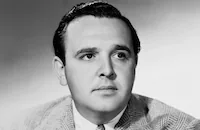
George Sidney
Cast

Kathryn Grayson

Gene Kelly

Mary Astor

John Boles

Ben Blue

Frances Rafferty
Mary Elliott
Frank Jenks
Frank Sully
Dick Simmons
Ben Lessy

Mickey Rooney

Judy Garland

Red Skelton

Eleanor Powell

Ann Sothern

Lucille Ball

Virginia O'brien
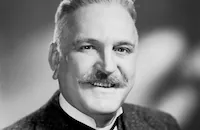
Frank Morgan

Lena Horne
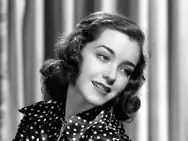
Marsha Hunt
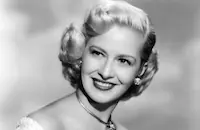
Marilyn Maxwell
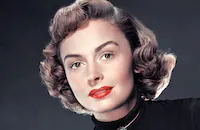
Donna Reed

Margaret O'brien
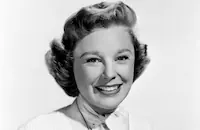
June Allyson

Gloria Dehaven
John Conte

Sara Haden
Don Loper
Maxine Barrat

Kay Kyser
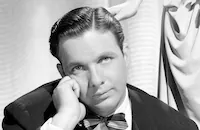
Bob Crosby
Benny Carter

José Iturbi
Bunny Waters

Wally Cassell
Odette Myrtil
Will Kaufman

Sig Arno

Connie Gilchrist
Daisy Bufford

Pierre Watkin
Peggy Remington
Ed Mortimer

Ray Teal
Carl Saxe

Bryant Washburn Sr.
Harry Strang
William Tannen
Florence Turner
Linda Landi
Eileen Coghlan
Eve Whitney
Aileen Haley

Betty Jaynes
Natalie Draper
Myron Healey
Cliff Danielson
James Warren

Don Taylor
Paul Speer
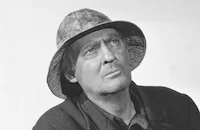
Lionel Barrymore
R. D. Keith
R. H. Harthun
F. S. Furtsch
Charles Cota
Bea Nigro

James Millican
Georgia Carroll
Harry Babbitt
Crew
Harold Adamson
George Bassman
Ralph Blane
George Boemler
Hugh Boswell
Earl Brent
Lew Brown
Daniel B. Cathcart
Richard Collins
Jack Dawn
Roger Edens
George Folsey
Ralph Freed
Leo Friedman
Cedric Gibbons
Eliseo Grenet
Ferde Grofé
E. Y. Harburg
Irene
Henri Jaffa
Paul Jarrico
Walter Jurmann
Natalie Kalmus
Burton Lane
Sam M. Lewis
Hugh Martin
Jacques Mersereau
Joseph Pasternak
Francesco Maria Piave
Andy Razaf
Harold Rome
Sandy Roth
Douglas Shearer
Dmitri Shostakovich
Herbert Stothart
Giuseppe Verdi
Thomas "fats" Waller
Mabel Wayne
Paul Francis Webster
Edwin B. Willis
Joe Young

Photo Collections
Videos
Movie Clip



Trailer
Hosted Intro
Film Details
Technical Specs

Award Nominations
Best Art Direction
Best Cinematography
Best Score
Articles
Thousands Cheer
One of the more memorable highlights of Thousands Cheer features Mickey Rooney doing dead-on impressions of two of his MGM colleagues, Lionel Barrymore and recent enlistee Clark Gable, from their film, Test Pilot (1938). You can also see Judy Garland, accompanied by Jose Iturbi in his film debut, performing "The Joint is Really Jumpin' in Carnegie Hall," an ice-cream eating contest between Red Skelton and little Margaret O'Brien, Lena Horne singing "Honeysuckle Rose," and Gene Kelly's famous mop dance. Lucille Ball, Eleanor Powell, Donna Reed, Mary Astor, Ann Sothern, June Allyson, and Kay Kyser and His Orchestra are just a few of the other MGM stars that turn up in this lavish spectacle that received Oscar® nominations for Best Art Direction, Best Cinematography, and Best Music Score.
Director: George Sidney
Producer: Joe Pasternak
Screenplay: Paul Jarrico, Richard Collins II
Cinematography: George J. Folsey
Editor: George Boemler
Music: Herbert Stothart
Cast: Kathryn Grayson (Kathryn Jones), Gene Kelly (Eddie Marsh), Mary Astor (Hyllary Jones), John Boles (Colonel Jones), Ben Blue (Chuck), Francis Rafferty (Marie), Lena Horne (as herself), Mickey Rooney (as himself), Lucille Ball (as herself), Red Skelton (as himself), Judy Garland (as herself), Eleanor Powell (as herself), Ann Sothern (as herself).
C-126m. Close captioning.
by Scott McGee

Thousands Cheer
Quotes
Trivia
Notes
The working titles of this film were Private Miss Jones and As Thousands Cheer. Onscreen credits note that Paul Jarrico and Richard Collins' screenplay was "based on their story 'Private Miss Jones.'" According to an April 1943 Hollywood Reporter news item, the title was changed from Private Miss Jones to As Thousands Cheer so that audiences would not assume the film was a war picture. As part of the film's show-within-the-show sequence, Red Skelton performs a sketch, playing a soda jerk, and Frank Morgan, playing a lecherous barber, performs a skit with M-G-M contract stars John Conte, Sara Haden, Ann Sothern, Lucille Ball and Marsha Hunt. Mickey Rooney plays the show's "emcee." For his only dance number in the film, Gene Kelly dances with a mop and a broom to an uptempo version of "Let Me Call You Sweetheart."
Hollywood Reporter news items add the following information about the production: In July 1941, Judy Garland was announced as the star of a film entitled Thousands Cheer, which was to be produced by Arthur Freed. Although Garland did appear in Thousands Cheer, she was not the star, and it is not known if the Arthur Freed project was related to the film released in 1944. Irving Berlin, who wrote the music to the Broadway revue As Thousands Cheer, which starred Fred and Adele Astaire, was announced as a possible contributor to the 1941 Thousands Cheer. M-G-M acquired the rights to Berlin's show in the 1930s.
Hollywood Reporter announced in May 1943 that Lena Horne was to record "Here I Go Again" for the picture. Although Kathleen Hedrick, Kathryn Grayson's four-year-old niece, was to play Grayson's character as a child in the 1944 film, that role was not included in the completed film. Bryant Washburn, Sr. was cast in the picture along with his son, Bryant Washburn, Jr., but only Washburn, Sr.'s appearance in the completed film has been confirmed. Comedian Gus Schilling was announced for a "top role," but he did not appear in the completed film. Former tennis champion Gene Mako was also announced as a cast member, but his appearance in the completed film has not been confirmed.
During production, Hugh Boswell replaced Sergei Petschnikoff as unit manager. As noted in the credits, José Iturbi made his screen debut in the film. In the CBCS, James Millican is listed both in the role of "Sgt. Carrington" and the role of "Major." It has not been determined which role Millican played. M-G-M publicity items note that the following "six-foot beauties" were cast in the picture: Bunny Waters, Helen O'Hara, Sylvia Liggett, Dorothy Ford, Susan Paley and Barbara Mace. Only Waters' appearance in the completed film has been confirmed, however. Publicity items also announced that Melva Block, an eighteen-year-old skating champion, was to make her screen debut during a roller-skating sequence, but the sequence was not included in the final film. The picture received Academy Award nominations in the Art Direction (Color); Cinematography (Color); and Music (Scoring of a Musical Picture) categories. Mary Astor was set to perform in a five-day serialization of the film on CBS radio from 13 September to September 17, 1943, according to Hollywood Reporter.
















